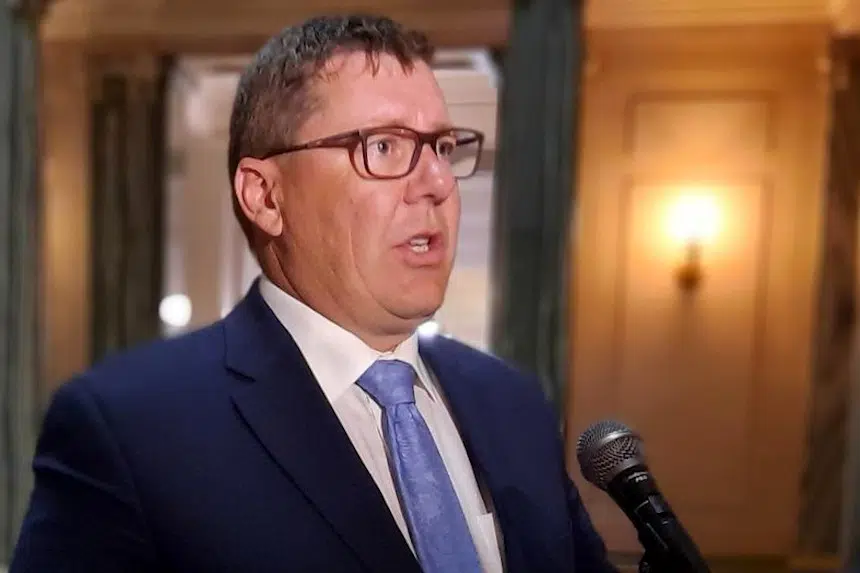All eyes have been on health-care funding in Canada, with provinces hoping the federal government increases its portion of the funding.
Saskatchewan Premier Scott Moe spoke exclusively with Gormley on Wednesday to share the province’s expectations going into the upcoming health-care meeting next Tuesday.
Moe said he’s looking for a significant increase in the Canada Health Transfer to make sure that health-care investments are properly cost-shared between Ottawa and the provinces.
“It would be over $700 million a year, so it’s significant into what is about a $6.5-billion budget each and every year,” Moe said. “That is where the entire (universal) health-care partnership began years ago. (It) was the equivalent of about a 35 per cent share federal share (with the provinces) picking up the other 65 per cent.”
Moe noted provinces have been asking for the federal government to return to that level of funding, which he said would ensure Saskatchewan’s surgical expansion would be sustainable for years to come.
Moe said that even though he doesn’t yet know the investment offer from the federal government, he was given an idea of the five categories that will be discussed with regards to how health-care delivery can be changed.
“We need more people in our health-care systems from right across the country and … we do need to change how we deliver health care and provinces are already doing much of that,” Moe said. “Provinces are already doing much of that. For example, here we’re expanding not only our public surgeries but our private surgeries.”
Moe said the provincial government is also looking to increase its mental health investment, which he said is a priority his government shares with the federal government and other provinces.
When it comes to the delivery of health care, the Canada Health Act allows the delivery of health-care services in a private manner as long as patients aren’t double charged.
Ontario is now considering following what Saskatchewan and Alberta do when it comes to private surgeries, which Moe said is not surprising.
“It’s publicly funded health care. Some of it is privately delivered and always has been,” Moe added. “Our physicians largely over the course (of the premier’s) lifetime, and yet today are fee-for-service physicians, they have their own professional corporation (and) bill the government for the numbers and procedures of patients that they see.”
He also said physicians have been privately operating in a publicly funded system for generations, which he says is compliant with the Canada Health Act.
As for the potential for more privately delivered health care, Moe says he’s open to it if it benefits patients.
“I wouldn’t preclude that we wouldn’t look at other areas to publicly fund private delivery of services. I wouldn’t say that we are actively looking at them now,” he added.
“We do something similar in the space of partnerships with community-based organizations, for example, in how we are delivering addictions treatment … where it isn’t the Saskatchewan Health Authority or the government that is actually operating these facilities (but) we’re publicly funding them.”







